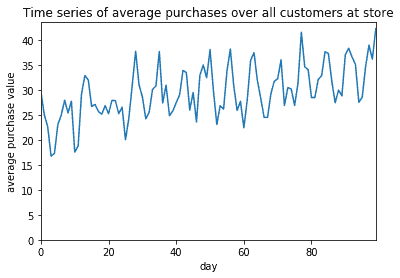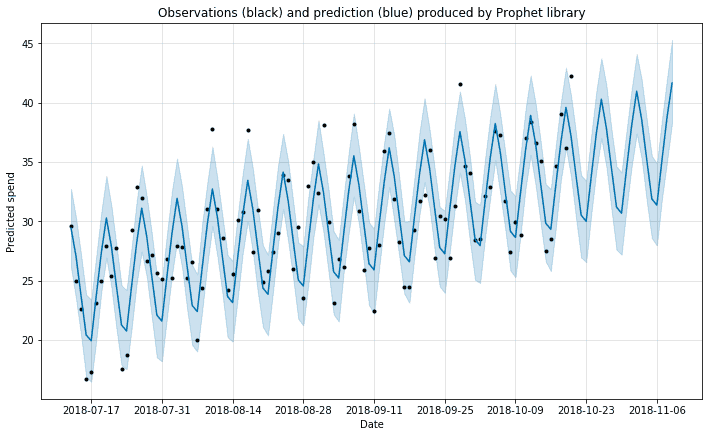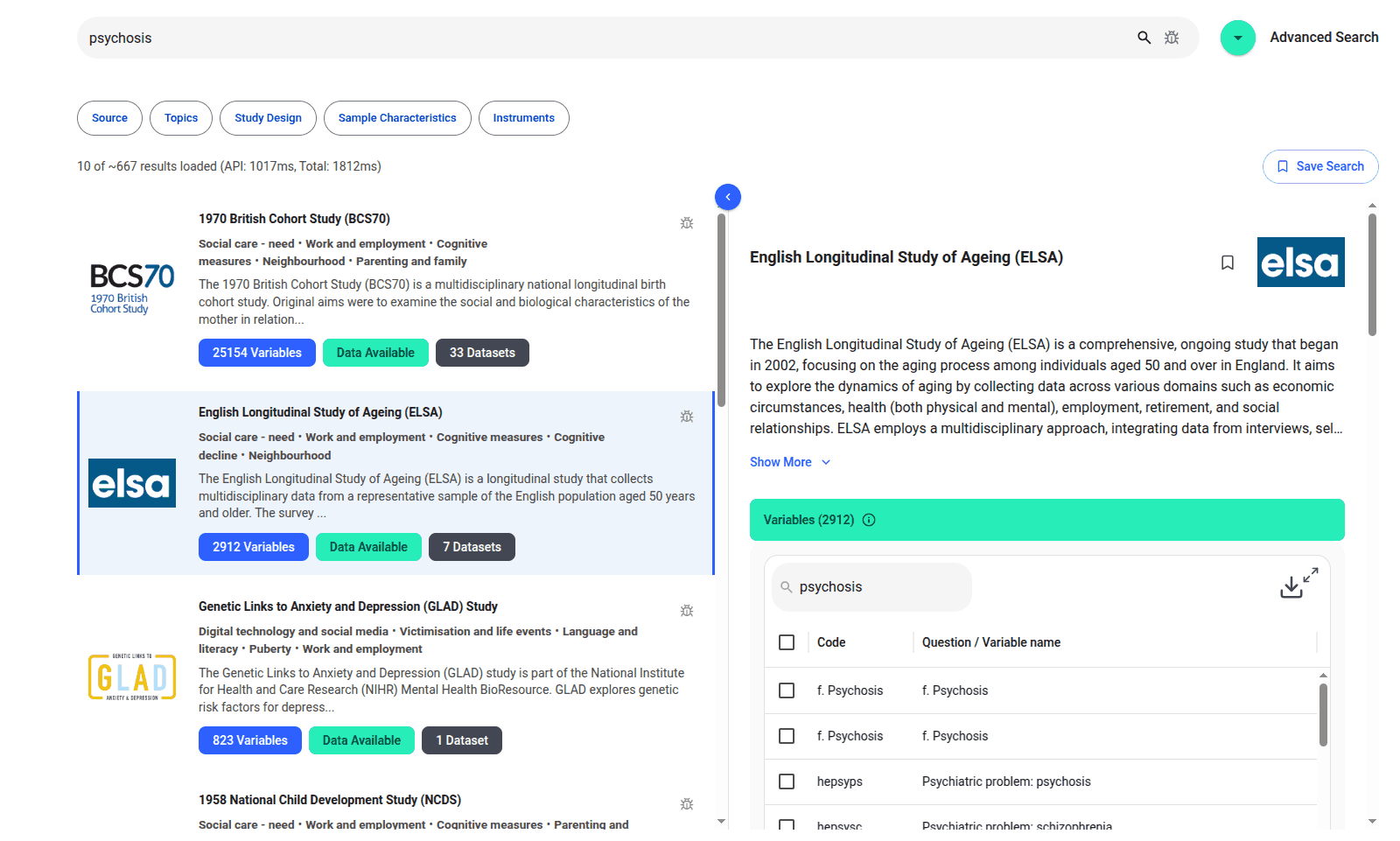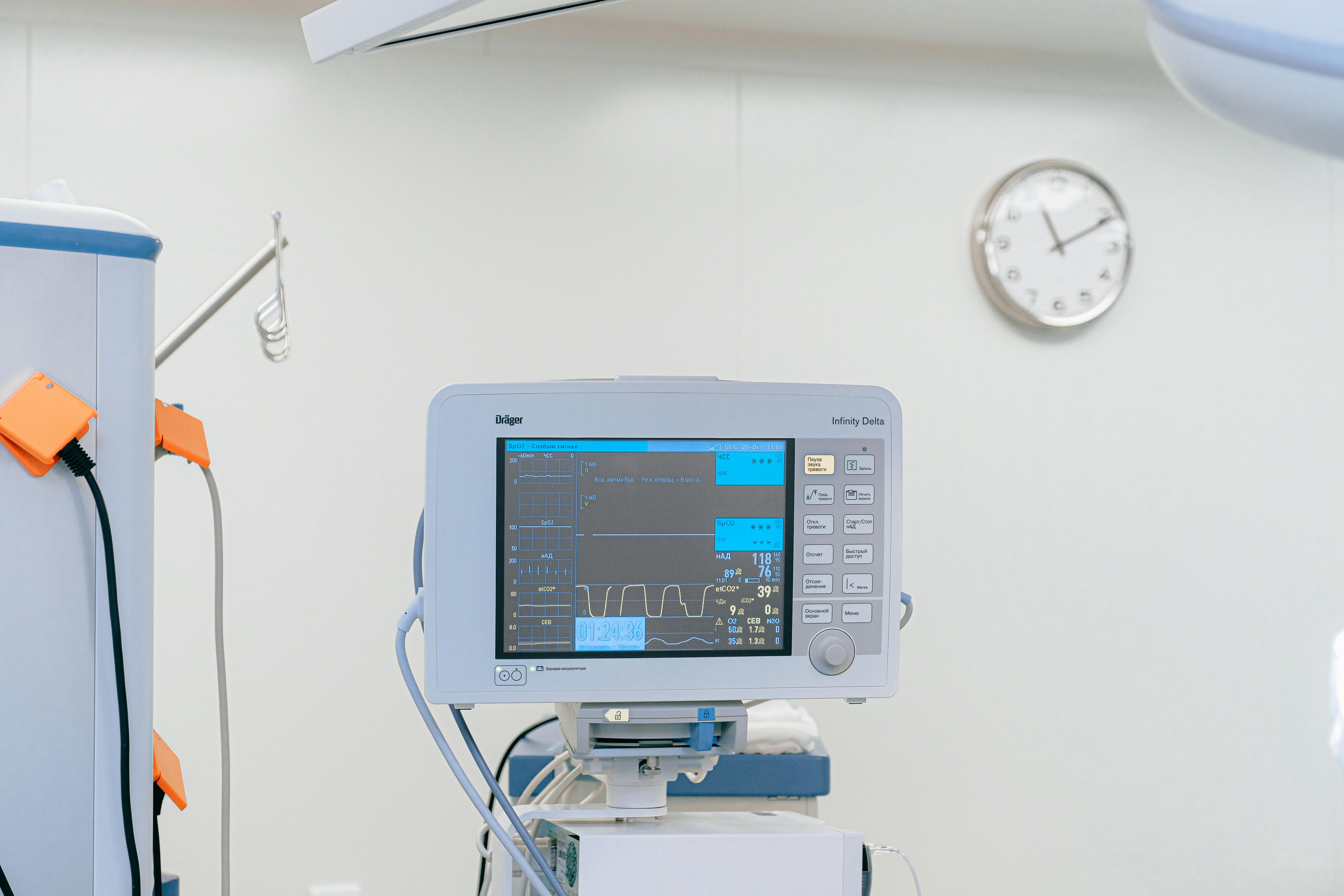
Earlier I wrote another post about predicting the spend of a single known customer. There is a related problem which is predicting the total spend of all your customers, or a sizeable segment of them.
If you don’t need to predict the spend of an individual customer, but you’re happy to predict it for groups of customers, you can bundle customers up into groups. For example rather than needing to predict the future spend of Customer No. 23745993, you may want to predict the average spend of all customers in Socioeconomic Class A at Store 6342.
Fast Data Science - London
In this case the great advantage is that you would not have so many empty values in your past time series. So your time series may look like this:

This means you can use a time series library such as Prophet, developed by Facebook.
Here’s what Prophet produces when I give it the data points I showed above, and ask it to produce a prediction for the next few days. You can see that it’s picked up the weekly cycle correctly.

This approach would be very useful if you only needed the data for budgeting or stock planning purposes for an individual store and not for individual customers.
However if you had small enough customer segments, you may find that the prediction for a customer’s segment is adequate as a prediction for that customer.
The next step up in complexity is multilevel models, where you use a different level of model for each region or economic group of customers, and combine them into a single group model.
To get the maximum predictive power you can try ways of combining time series methods with a predictive modelling approach, such as taking the results of a time series prediction for a customer’s segment and using it as input to a predictive model.
If you have a prediction problem in retail, or would like to some help with another business problem in data science or AI, I’d love to hear from you. Please contact me via the contact form.
Unleash the potential of your NLP projects with the right talent. Post your job with us and attract candidates who are as passionate about natural language processing.
Hire NLP Experts
We are excited to introduce the new Harmony Meta platform, which we have developed over the past year. Harmony Meta connects many of the existing study catalogues and registers.

Guest post by Jay Dugad Artificial intelligence has become one of the most talked-about forces shaping modern healthcare. Machines detecting disease, systems predicting patient deterioration, and algorithms recommending personalised treatments all once sounded like science fiction but now sit inside hospitals, research labs, and GP practices across the world.

If you are developing an application that needs to interpret free-text medical notes, you might be interested in getting the best possible performance by using OpenAI, Gemini, Claude, or another large language model. But to do that, you would need to send sensitive data, such as personal healthcare data, into the third party LLM. Is this allowed?
What we can do for you